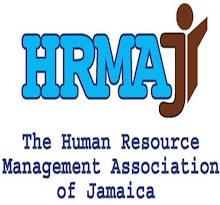
“Only 25 percent of women reported feeling confident with how their investments were allocated vs. 42 percent of men, and 63 percent of women said they had a handle on their cash flow vs. 80 percent of men.”
Some 19% of men are secure that they will replace 80% of their income in retirement, while only 12% of women share this confidence. These claims are substantiated by other studies, like that of Dr. Annamaria Lusardi of Dartmouth College in New Hampshire, USA. An interview conducted between Dr. Lusardi and the Federal Reserve Bank of Minneapolis revealed that while the overall levels of financial literacy were low, women, racial minorities, the young and old were the least financially knowledgeable.
The issue of financial illiteracy has been around for years, but with the economy becoming a more dangerous place to be ill informed, the issue has elevated in concern. Does HR however respond to this issue by making available for employees the necessary information on financial information?In moving forward, measures may need to be taken to involve financial literacy as part of training programs. The upside however, is that female staff will be more receptive to this change. According to Dr. Lusardi’s research, while women are more financially illiterate than men, they are aware of this fact. They have objectively assessed their own knowledge, are more sensitive to their lack of knowledge and therefore more willing to address the situation.
“If you go to a financial education program, you'll likely see that a large majority of the audience is women. If you look at the market for financial advice, the more successful books and writers are those that target women,” said Lusardi.
Read more:
Although women fall short when compared to men on the issue, men are not to be forgotten as overall their level of financial literacy is still poor. Management must respond knowing how to address the needs of each group. Programs need not be separated by gender in entirety however, in order to effectively communicate, women and men must be addressed in their own capacities. Influential in the success of financial education programs at Dartmouth Lusardi said was listening to what the audience wanted. Programs must be designed with the receiving audience in mind to increase the reception to the information presented. This includes the format, speakers, duration, media used etc.
These financial education programs can significantly benefit the employees’ personal financial standing as well as the economy on a whole. Executive director of the Financial Services Commission Rohan Bartlett commented on the future implications of financial education to the Gleaner when speaking of the financial lessons being offered by his organization to high school students.
"A more financially literate population fosters sustainable and orderly economic growth and development for our country, this is because a more financially savvy population saves and invests more and are better able to understand and respond quickly to public policy changes," he added.
President of the Banker’s Association Minna Israel echoed this view, commenting on the success financial literacy can bring in regards to standard of living. 
Institutions that provide training need to consider including financial education as a premiere topic when preparing persons for the working world. While the Financial Services Commission will tackle this issue from the high school stage, opportunities need to be created for working persons who still are not knowledgeable.
Does HR have a part to play in helping tilt back the balance between male and female financial literacy?
Join in the discussion and tell us where you stand. It begins with us, it begins right here.
The Human Resource Management Association of Jamaica



No comments:
Post a Comment